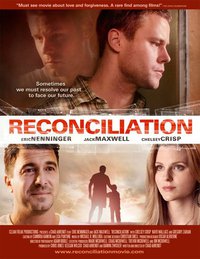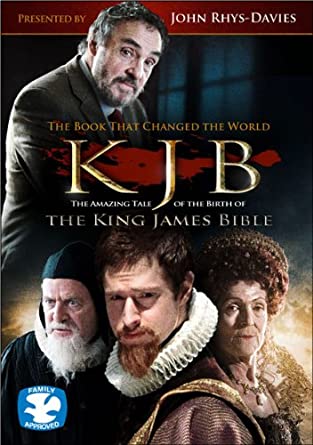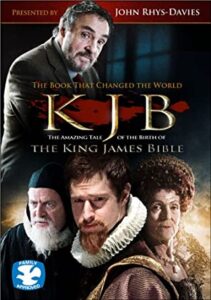Interview: Chad Ahrendt of ‘Reconciliation’ (Part 2)
Posted on May 16, 2011 at 3:55 pm
Part 2 of my interview with writer/director/producer/editor Chad Ahrendt of “Reconciliation,” a faith-inspired film about a man who reaches out to the gay father who abandoned him.
7. For those who consider homosexuality a sin, what is the greatest barrier to finding a loving way to stay connected to friends and family who are gay and those who feel differently?
Every situation is different so it’s hard to pinpoint what the barrier might be for a particular individual, family or circumstance. It’s important to remember we can’t change anyone else, nor are we called to change others. We are called to share the Gospel. God changes people. Sanctification (becoming more Christ like) is a process of growing in holiness and obedience to the Lord and we only have control over our self and the choices we make. So, is that Christian living a holy life or are there areas where he or she is “picking and choosing” what to follow and obey in God’s Word? How might “picking and choosing” be viewed from a non-believer? Does that Christian truly understand the Gospel and if so is he or she being a proper example of it? Does that Christian remember the grace, love, patience and compassion with which the Lord dealt with him or her before coming to know the Lord and the times when they stumble? Over and over again scripture talks about love – loving God, loving our neighbors, loving our enemies, love covering a multitude of sins, and let us never forget it is love that drew each of us to Christ. Scripture equally talks about God’s hatred for all sin and so we should never condone any sin, but the question becomes is that Christian winking at other sins while holding homosexuality to an unbiblical hierarchy of sin? Does a family have the same rules and standard for their daughter and her boyfriend as they do with their son and his boyfriend?
Secondly, does that Christian realize his or her sexual brokenness? We are all tempted by sexual sin and many, even within the church body, struggle with various sexual sins daily. The fact that we are all sexually broken apart from God’s original intention should not only humble us, it should also make us more compassionate and understanding. As Christians we shouldn’t feel condemned by our brokenness, rather look to the Cross and praise the Lord for He has defeated sin and given us a way to no longer be in bondage to sexual immorality. With God’s Word, Spirit and strength we can fight sin, flee temptation and press on in pursuit of holiness. 
Thirdly, while the Lord only truly knows a person’s heart He does say we can know people by the fruit they are bearing – fruit of the Spirit or fruit of the flesh. Billions profess to follow Christ and if that were true our world would look radically different. Read 1 Corinthians 5 if one wants to see how sexual immorality of any kind defiles the church and destroys families and read verses 9-13 carefully to see how God calls the church not to judge non-believers, but to judge believers and “purge” the sexually immoral from the church. If the church obeyed these verses we’d either see repentance on a grand scale or the church pews would almost be empty. As a church body I encourage us to get back to the Gospel, raise up men and women to be obedient in the Lord’s ways, take the plank out of our own eye when it comes to sexual immorality, and humbly fall on our face before the Cross and repent of the judgment, hatred and condemnation we’ve cast upon those with same-sex attraction – and then start loving them as Christ loves them and desires to be reconciled to them.
8. Is the forgiver or the forgiven the primary beneficiary of forgiveness?
Every situation is different, but speaking of forgiveness from a purely broken world perspective I think both can equally be the primary beneficiaries for different reasons. Take the examples of forgiveness in the movie between father and son. The father abandoned his family causing the son to say some very hateful things to his father, even denying his dad’s existence. Their choice to sin against one another brought about guilt, shame and loneliness. Through love, compassion, and listening that brought about better understanding of the circumstances they were able to extend grace and forgiveness and reconciliation was possible. Each benefited equally as father and son reunited. The bondage to shame and guilt were broken as love and grace abounded.
In the situation of the Cross there is only one offended and sinned against party – God. God, being perfectly holy and blameless, is entirely dedicated to reconciliation with the offender – all of humanity. Mankind, irrefutably guilty, rejects God and His holiness instead choosing to seek their own path. Injustice cannot just be overlooked, there must be a price paid. In God’s steadfast love for His disobedient creation He takes that penalty upon Himself by sending his Son, Jesus Christ, who voluntarily took mankind’s punishment as the perfect intermediary. At the Cross God’s wrath for sin meets God’s love for mankind. Who is the primary beneficiary in this instance?
9. Why is forgiveness so difficult?
Usually when we are sinned against there is a consequence whether it be financial, emotional or both. We want the other person to pay a price for the damage done. We want them to feel similar heartache as they caused us. We think, “Why should the offender get a free pass?” The irony is that’s exactly what God gives each of us – in essence a “free pass,” because Christ took our penalty upon Himself. Christ took the wrath each of us deserves. Jesus, completely innocent, was made guilty for our sake.
In our judicial system if we are caught breaking the law we expect there will be a penalty to pay depending on the crime. In the situation with God, He excuses our sin because the price has been paid, but this is hard for many to accept because they want to “repay their debt.” God gives it as a free gift, knowing there is nothing we could do to ever repay and if we could then we would feel entitled. That’s love. That’s true forgiveness. That’s the example we should never forget.
10. What is the importance of the chaplain’s comments?
The chaplain’s words are very challenging for everyone, because they make everyone stop and think. The chaplain is a man that has been transformed by God and His word, and he does not cater to the left or right wing agenda. His only agenda is to share the Gospel and God’s transforming power which is counter intuitive to the American culture that is increasingly becoming more and more all about “self.” If one really listens to all his words they will have a better understanding of the Gospel, the brokenness of this world, and how we can better become the hands and feet of Christ to a broken and lost world. There are two kinds of people in the world: those that are broken and following Christ, and those that are broken apart from Christ.
11. What did you learn from making this film and what do you hope people will learn from watching it?
Homosexuality is a polarizing topic that isn’t going away so Christians need to educate themselves properly from a Biblical and Gospel point of view. Today we see major denominations straying from God’s Word to appease the masses. As individuals we must decide where we stand on God’s Word, even when it means opposition from the world. As Christians we must ask ourselves if we are living a holy life and being a Christ like example or is their sexual sin we need to repent of? The church has been losing the battle on sexual purity for a long time now. Pastors must be proactive and talk about the difficult topics and educate their congregations on God’s standard.
We have two hopes for the movie: First, is that people will be reminded or introduced for the first time to the true essentials of the Gospel: God created all of us. He loves all of us. We have all rejected and turned away from Him and despite our rejection and disobedience He loves us so much and desires to be reconciled with each of us that He took our penalty upon Himself. It’s our choice to accept or continue rejecting what Christ has done for us and then because of our gratitude for what He has done we will gladly learn to walk in obedience to His ways. We must remember it is Christ that heals and changes a person and these changes begin after a person has surrendered his or her life back to the Creator. If people could truly change themselves what was the purpose of the Cross? Secondly, that as we all start to realize our own sexual brokenness apart from God’s original design we will repent of it and turn to the Lord and become more understanding and compassionate to those that don’t know the Lord. God did not intend for mankind to be in bondage to all the sexual immorality listed in the Bible. God does not call people to be straight, gay, or bisexual. In Leviticus 11 and 1 Peter 1 God says “Be holy, for I am holy.” We have all missed God’s mark for “Holy Sexuality.” Lets not be condemned of our sin, rather repent and turn to the Lord’s ways and walk in obedience to His calling on our life. Lets stop identifying ourselves with all these man made labels that only separate us and instead look at the Cross that unites us.
People can watch the trailer & find out more or follow the film on Facebook. Buy “Reconciliation” on DVD.
I have one copy to give away to the first person to send me an email at moviemom@moviemom.com with “Reconciliation” in the subject line — don’t forget to include your address.



